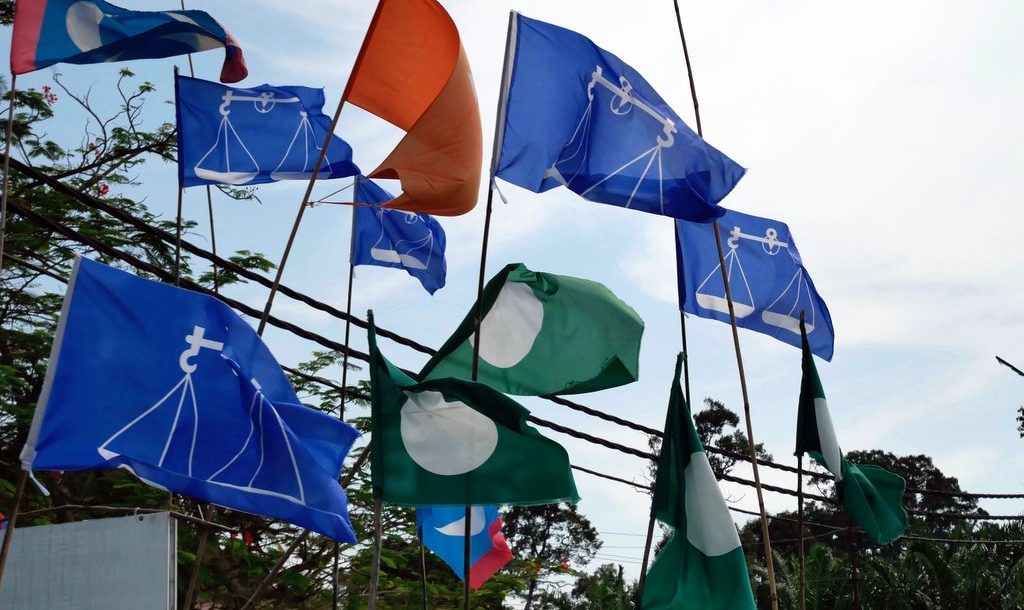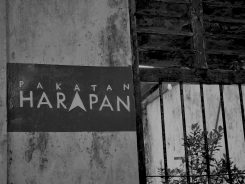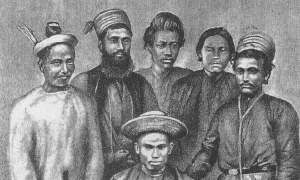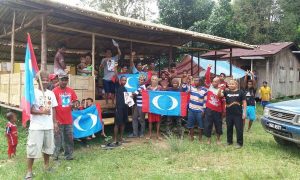The period since Malaysia’s 14th general election (GE14) has been continuously colourful, marked by mind-boggling issues and shifts. There have been a series of party-hops by members of parliament and state legislative assemblies, which have sparked critiques of partisan loyalty. Along the way, episodes of religious and racial scuffling, tied also to partisan contests, have presented alarming threats to national unity.
The birth of a new political party, the Malaysian United Indigenous Party (Bersatu) led by Mahathir Mohammad, has been central to these developments. Bersatu presents itself as an upgraded version of the United Malays National Organisation (UMNO) which, Mahathir argues, has drifted from its original mission and objectives. Since independence in 1957, a few other political parties have emerged from among UMNO leaders and ranks, namely PAS, Semangat ’46 and Parti Keadilan Rakyat (PKR). But Bersatu’s path has been distinctive.
Semangat ’46 was eventually dissolved, with its members re-joining UMNO, in May 1996—nine years after its establishment in 1988 by Tengku Razaleigh Hamzah—still today an UMNO Member of Parliament (MP) from Gua Musang, Kelantan. For their part, PAS and PKR are both dominant political parties, able to attract a substantive number of loyal supporters. Currently, PAS seems to be embarking on a friendlier relationship with UMNO, particularly evident in a series of post-GE14 by-elections. For some Malaysians, this UMNO–PAS relationship is something new, but seen in light of history, PAS has simply reunited with its root party.
The inception of Bersatu on September 8, 2016—widely presumed a temporary outburst reflecting UMNO leaders’ frustration with and antagonism against Najib Tun Razak—raised inevitable comparisons with these other UMNO offshoots. Many observers predicted that Bersatu would prove another Semangat ’46. However, this prediction was proved inaccurate when Pakatan Harapan (PH), led by Bersatu leader Mahathir, won GE14. At that point, a few more UMNO leaders withdrew from their party and joined Bersatu.
Loyalty vs principle
To date, since GE14, seventeen UMNO MPs have left Barisan Nasional(BN) and joined PH. Many observers, including leaders of other PH component parties, have publicly expressed their concern about and disagreement with this practice. Ronnie Liu of the Democratic Action Party (DAP) in Selangor, for instance, publicly urged Mahathir not to accept more opposition-party leaders, especially from UMNO, lest the incoming tide of members from the former ruling coalition undermine the principles of PH as a “new Malaysia” governing party.
A Changing Malaysia?
A new series of perspectives on the “Malaysia Baharu” from Malaysian scholars, activists, and policymakers.
Her decision to join Bersatu after months as an independent MP was so she could receive benefits for her constituents, especially the full constituency budget allocation that ruling-party MPs receive (the PH government gives opposition-party MPs only a partial allocation) and for easier collaboration with the current ruling party. She has received backlash from members of her former party and has been asked repeatedly to resign as MP. Although many have accused her of being a traitor, she believes her decision is based on her strong principles and integrity, and her inability to tolerate bad politics.
Notwithstanding countless harsh criticisms, she has managed to continue her service-delivery as MP due to the support and encouragement she has received from her family, friends, the Bersatu leadership and, most importantly, the voters in her constituency. Her experience in switching parties after more than 15 years with UMNO has made her realise the importance of giving the best service to people, instead of putting party politics first. Loyalty to a party is important, she feels, but not when it jeopardises certain core principles, such as demonstrating trustworthiness and sincerity in serving the nation.
All politicians who have switched parties after GE14 have faced similar backlash. They are accused of being traitors, cowards and opportunists, and have become some of the main targets of cyber-bullying. What these attacks ignore is that party-switching, also known as party-hopping or floor-crossing, is not an alien phenomenon in a democratic country. It happens all over the world, such as in the United Kingdom, Canada, Australia, Italy, New Zealand and the United States. To date, only a few countries, such as India and Bangladesh, have enacted laws to remove a member from parliament if they switch parties.
As Deputy Minister in the Prime Minister’s Department, Mohamed Hanipa Maidin announced in Parliament on April 10, 2019, currently the government has no plans to formulate an anti-hopping law, since doing so would contradict two articles of the Malaysian Federal Constitution. Article 10 spells out Malaysians’ right to freely join or withdraw from any association and Article 48 clearly states that an MP cannot be prosecuted for switching parties.
Although it is against the Federal Constitution to prosecute party-hopping leaders, a few parties have implemented party-switching rules within their parties. Loyalty oaths, or baiah, are well-known among potential PAS candidates. One of the most controversial components of the baiah in Kelantan is the member’s promise that disloyalty to PAS will lead to their automatic divorce from their spouse by way of talak tiga (stating their intent to divorce three times, an option only available to men in Malaysia) with no option to remarry. This bizarre, patriarchy-centric oath has been heavily criticised, obliging PAS Kelantan to revise it prior to GE14. Meanwhile, before GE14, Bersatu was planning to implement a new rule, requiring all candidates to sign a contract penalising floor-crossing with a fine of approximately MYR20 million.
Unity vs polarisation
While party-crossing remains controversial, it is not the only way partisanship has coloured post-GE14 politics. Shifting partisan loyalties are reflected in issues related to racism and religion—issues frequently contested, particularly in the course of post-GE14 by-elections—as well in the context of government initiatives to strengthen human rights in Malaysia. During recent by-elections in the Cameron Highlands and Semenyih, a new coalition between UMNO and PAS perceptibly (and successfully) campaigned based on race and religion to win those seats.
For instance, in a joint UMNO–PAS rally, campaigners kept reminding voters always to defend Malay privileges and Islam as Malaysia’s official religion. These campaigners managed to create doubt among Malays, especially as they claimed the heavily Chinese DAP to be the leading political party in the current government. From the perspective of UMNO and PAS, DAP is a political party that fights for equality among all Malaysians and ultimately wants to abolish Malay privileges, as well as the official religion. Although DAP leaders such as Lim Guan Eng have repeatedly denied these allegations, some Malays seem to believe them to be true. This “race-and-religion card” has proved to be an effective campaign tool in Malaysia and has allowed UMNO and PAS collectively to differentiate themselves from the also-Malay-Muslim-based Bersatu andParti Amanah Negara (Amanah) in Pakatan Harapan. However, it is also known to be lethal over the long-term in a multiracial country.
Backlash against the current government’s initiatives to strengthen human rights are also due to the UMNO–PAS coalition’s playing the race-and-religion card. The UMNO–PAS coalition effectively gained popularity when the government announced plans to sign two international human rights conventions, the International Convention on the Elimination of All Forms of Racial Discrimination (ICERD) and Rome Statute of the International Criminal Court. The UMNO–PAS opposition coalition, in coordination with several Malay-based NGOs, successfully organised demonstrations against these initiatives. A demonstration against ICERD in early December 2018 managed to attract tens of thousands of participants, despite the government’s last-minute announcement that they would not ratify it, after all. The Prime Minister explained that it would be impossible to implement the convention, as doing so would entail amending the Federal Constitution, which requires a two-thirds majority in Parliament (which PH alone does not have).
In light of the government’s backtracking, PAS leader Abdul Hadi Awang said the demonstration would be to celebrate the non-ratification of ICERD. Signing the convention, he dramatically averred, would be akin to punching holes in a mosquito net to allow mosquitoes in, or, more ominously, to allowing Freemasons to take control of Malaysia. By Freemasons, he referred to the west, which he sees as seeking to control the economy and put all religions on the same level. He insisted that Freemasons are anti-Islam and want to change the current position of Islam, to make it no longer Malaysia’s official religion, and to weaken or remove Malays’ special privileges. Demonstrator turnout at anti-ICERD rallies indicates that many Muslim Malays accept his arguments.
Its decision to ratify the Rome Statute, which the Malaysian government signed to become party to in early March 2019, represents another effort by the current government to strengthen human rights. The statute establishes an International Criminal Court (ICC) to adjudicate in cases of alleged genocide, crimes against humanity, war crimes, and crimes of aggression. This initiative too sparked controversial and highly partisan debates.
Four academics presented their conclusions regarding the negative consequences of ratifying the Rome Statute to the Council of Rulers on April 2, 2019. Some of the potential consequences they highlighted were that ratification would lessen the country’s sovereignty and that the ICC could investigate the Malay rulers; they noted too, that issues such as the Palestine–Israel conflict and that of the Rohingya in Myanmar suggest the Rome Statute is not an effective instrument to eliminate genocide and war crimes. This presentation led the monarchs to take issue with the government’s decision to ratify.
The UMNO–PAS coalition, together with several Muslim-based NGOs, then organised a peaceful demonstration, called the 405 rally, on May 4, 2019 to protest the PH government. The rally centred on the government’s allegedly side-lining Malays and Muslims with regard to the Rome Statue, but also ICERD, the Unified Examination Certificate awarded by Malaysia’s Chinese independent schools, and the death of a Muslim fireman during a riot at the Seafield Temple. UMNO Youth leader, Asyraf Wajdi Dusuki and PAS Deputy President, Tuan Ibrahim Tuan Man were the two main speakers at this rally. Home Minister Muhyiddin Yassin urged Malaysians not to take the rally seriously, but as just another provocative tactic by an opposition out of ideas with which to criticise the government; a government which always upheld Islam as the country’s official religion, as stated in the Federal Constitution.
However damaging this sort of partisan grandstanding may be to PH’s efforts to implement its agenda, the UMNO–PAS coalition’s defence of Malay-Muslim rights does clearly benefit the coalition’s declared constituency; defending a strong coalition agenda is what the political opposition is expected to do. For example, the current government had decided to cut state subsidies for certain hajj travellers. In light of opposition parties’ strong representation on this issue, the government cancelled the subsidy cut and maintained the previous subsidised rate. This decision was good news to thousands of hajj travellers, who are in need of the subsidy to perform their duty as Muslims. This scenario reminded Malaysians of the importance of a strong opposition, even if some of the current opposition’s approaches may contradict democratic principles.
It is when these partisan contests extend beyond parliament that tensions may be especially prone to rise. Many commentators have commended the government’s moves to strengthen and widen space for democracy and human rights. One example of such efforts was the anti-ICERD rally, which was given a green light, even though it intended to stimulate criticism against the government.
However, human rights reform initiatives have sparked backlash, as opposition parties have used these initiatives to instil racial and religious insecurity from which they, as avowed communal champions, in contrast to the multiracial PH, can benefit. For instance, after the 2019 Women’s Day March, some Malaysians blamed the government for failing to control the march and specifically, for allowing representatives of the lesbian, gay, bisexual and transgender (LGBT) community visibility to highlight their agenda during the event. Batu Kawan MP Kasthuri Patto defended the organiser, the Joint Action Group (JAG). She explained that it was a peaceful assembly that called for an end to gender-based violence, child marriage, rights of women as decision-makers, equal pay, a minimum wage of RM1,500 and an end to patriarchal practices.
JAG also defended their event as an inclusive one, noting that the LGBT group was only one out of many women’s groups involved among, for instance, groups of women with disabilities and other marginalised groups. JAG believed some parties with ill intentions aimed to steer bad publicity to the event by highlighting the LGBT group’s participation. Opposition parties saw an opportunity to politicise the episode: they questioned the government’s credibility when it came to controlling the LGBT movement and said this movement is getting bolder in the “new Malaysia” era.
This incident may be emblematic of institutional-reform and human-rights initiatives the PH government has proposed since GE14. The UMNO–PAS coalition’s efforts to make matters related to race and religion their own bailiwick, in an effort to influence and secure the loyalties of the Muslim Malay majority, has repeatedly put PH on the defensive. PH has had to called on Bersatu and Amanah, its own two Malay-Muslim component parties, to counterbalance the UMNO–PAS coalition’s influence and strengthen PH’s ability to attract Malays as well as other Malaysians. But doing so may take PH off track, as it responds to an opposition agenda rather than aggressively pursuing its own.
The way forward
Clearly, various institutional, policy and cultural reforms are needed to improve the country’s image and conditions. However much more difficult partisan politics and polarisation may make it for PH to pursue those reforms, these tendencies in fact suggest a degree of maturity in the Malaysian democratisation process. Some surveys conducted during GE14 and subsequent by-elections have indicated a lesser obsession with and blind loyalty towards political parties, with voters’ decisions depending more on candidates’ personalities and local origins.
The floor-crossing of political leaders also demonstrates the erosion of blind party loyalty among legislators, and politicians’ daring to uphold personal ethical principles. Even a few PH leaders, such as Youth and Sports Minister, Syed Saddiq, have reminded Malaysians of their right to vote out any government or politician for not doing their job to serve the people and country. Polarisation, including on the suitability of racial and religious divisions and barriers, remains inevitable due to old but effective opposition party tactics to gain political influence.
However prone to bringing catastrophic outcomes playing race and religion cards has proved to be in the long run in the past, the opposition still sees this tool as its best option to gain short-term political influence—i.e. to win GE15. It is to be hoped that the opposition and governing parties alike will be responsible in promoting their parties’ interests and keep to strategies that are in line with Malaysia’s long-term goal of becoming a developed country.
 Facebook
Facebook  Twitter
Twitter  Soundcloud
Soundcloud  Youtube
Youtube  Rss
Rss 



